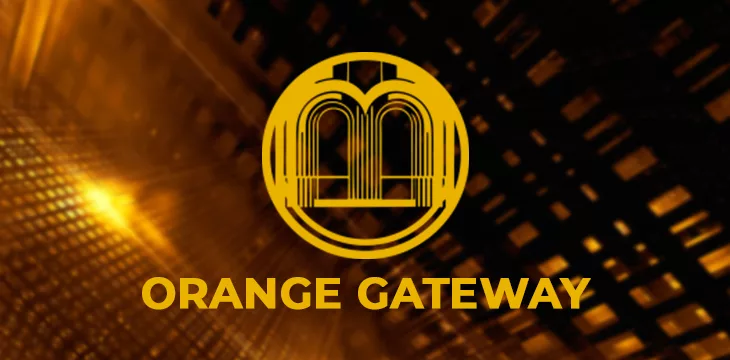|
Getting your Trinity Audio player ready...
|
There’s a new exchange in town, and for BSV users, it’s a godsend. Orange Gateway will not only trade BSV against USD and EUR fiat pairs, it’s operated by BSV proponent Hlynur Thor Bjornsson, who has worked closely with regulators and banking partners in his native Iceland to make the exchange a reality.
Even the most dedicated supporters of the only large-block, scalable Bitcoin protocol admit it can be hard to actually get hold of its native token, BSV. In fact, this is probably one of the BSV industry’s largest grievances—the more troublesome it is to acquire and sell BSV, the more likely it is to deter new users and project developers.
“There’s so much monetary value in BTC and ETH, and people interested in exchanging those into BSV are welcome to do so,” Bjornsson told CoinGeek.
Orange Gateway: The basic facts
Orange Gateway launched in June and is available to KYC-verified users in most countries, including the United States. It supports fiat transfers from bank accounts around the world via SWIFT, and via SEPA for those living in the Eurozone.
https://t.co/3QVBfsqMhG is now open… join us and trade #Bitcoin #BSV
— Orange Gateway (@orangegatewayx) June 18, 2024
Users will be able to trade BSV against USD and EUR, as well as other popular digital assets such as BTC, ETH, and stablecoin USDC. They will also be able to make withdrawals in any of these currencies. Notably, Orange Gateway does not support Tether (USDT).
Orange Gateway currently requires 30-block confirmations for BSV deposits, a condition from its payments infrastructure provider, which is still better than the 100+ confirmation deposits some exchanges have been known to use. However, the company is liaising with BSV’s SPV Wallet team and will integrate that, along with its own Paymail address, once everything is publicly available.
The exchange is fully regulated and licensed by the FSA (under the Central Bank of Iceland). It is, in fact, the first company to be registered as a “virtual asset service provider” in Iceland, thanks to Bjornsson’s experience and contacts in Iceland’s government and financial industry.
Orange Gateway is careful to stay comfortably within regulations, so only spot trading is available. There won’t be anything more exotic (and multiple times riskier) like digital asset derivatives, or trading leverage.
Lessons from Iceland (and others)
Speaking to Kurt Wuckert, Jr. on the CoinGeek Weekly Livestream recently, Bjornsson said he’d “been a big-blocker since day one” and that he’s bullish on BSV’s potential once Teranode is running, allowing the network to process over a million.
Bjornsson has a long history in the financial world, which, given his outlook and nationality, eventually led him to understand the need for an alternative to the existing financial system.
He has a background in risk management, particularly for credit card companies and pension funds. He worked as a primary dealer for government bonds in the mid-2000s when Iceland’s overly-large financial sector collapsed dramatically in a mountain of debt multiple times larger than the country’s GDP.
The crisis, which wasn’t sorted out until 2011 at least, impacted everyone there. The value of local currency, the krona (ISK), plummeted as units were “printed” out of thin air in a vain attempt to cover some of the debts. Credit and debit cards almost stopped working as providers like Visa (NASDAQ: V) and Mastercard (NASDAQ: MA) threatened to quit doing business in the country—creating extra difficulty for locals as Iceland was an early adopter of the “cashless society” concept. Even the IMF had to step in, and although Iceland today has settled all its debts, memories and scars from the crisis remain.
So… has Bitcoin solved the problems inherent in the financial system, both in the past and now? “Not yet, because it’s not a cash system anywhere yet,” Bjornsson said.
The need for massive scaling dawned on him during a 2016 visit to a mainframe site for a local credit card company, which operators told him was peaking at around 100 transactions per second.
“At that time, there was only BTC, and we were doing four (transactions per second). It became blatantly obvious to me that Bitcoin needs to scale. If a company Iceland is doing 100 a second, what was happening in the BTC camp was ridiculous,” he pointed out.
“It was obvious to me that bigger blocks and an emphasis on scaling was the way we had to go.”
(For the record, ~4 transactions per second is still the BTC network’s limit. That’s the entire network worldwide, not just Iceland. And yes, that number is still ridiculous.)
BTC has still not proven its feasibility as digital cash, and in its current state is definitely not “the money of the future.” The traditional financial system has not proven to the world it has learned from its past mistakes. Even BSV, which solved BTC’s scaling problems simply by restoring Bitcoin’s original protocol, hasn’t taken the world by storm yet.
Part of the reason for this triple predicament is the lack of exchange options for existing BSV users and the BSV-curious. While adding one more exchange won’t solve that problem overnight, it’s an important step in the right direction. Having an operator with a deep understanding of all these issues—and why BSV is an answer to them—is a big bonus.
Watch: CoinGeek Weekly Livestream with Kurt Wuckert Jr. & Hlynur Thor Bjornsson

 02-19-2026
02-19-2026 




